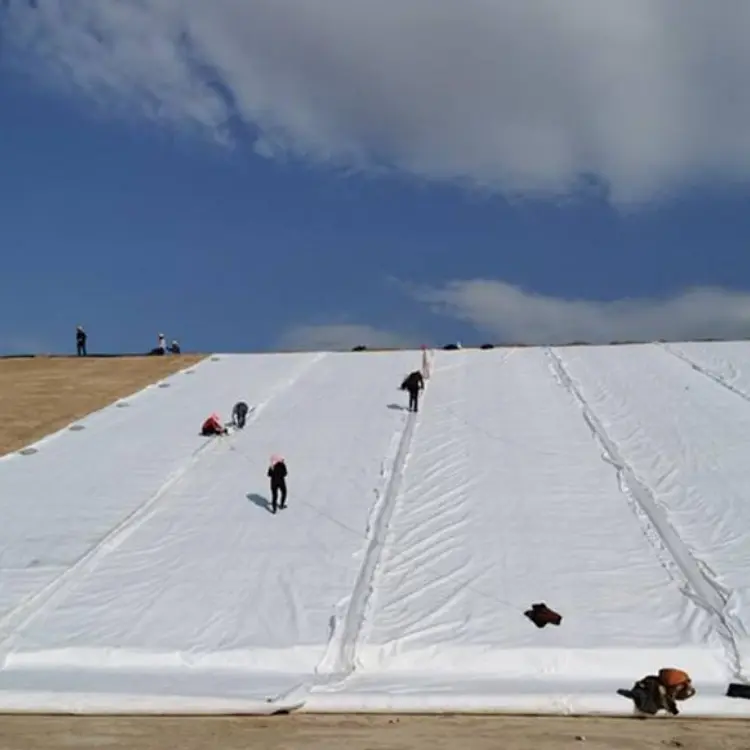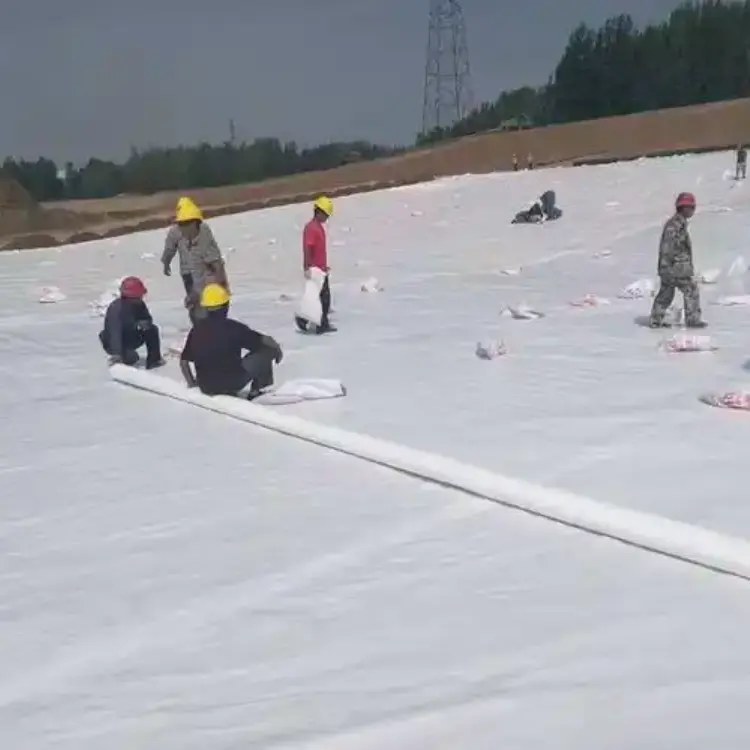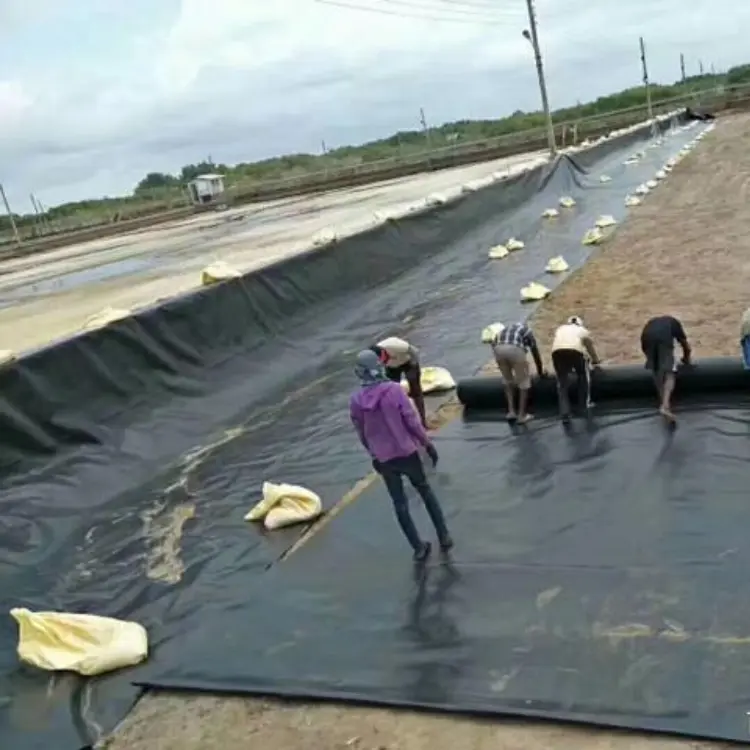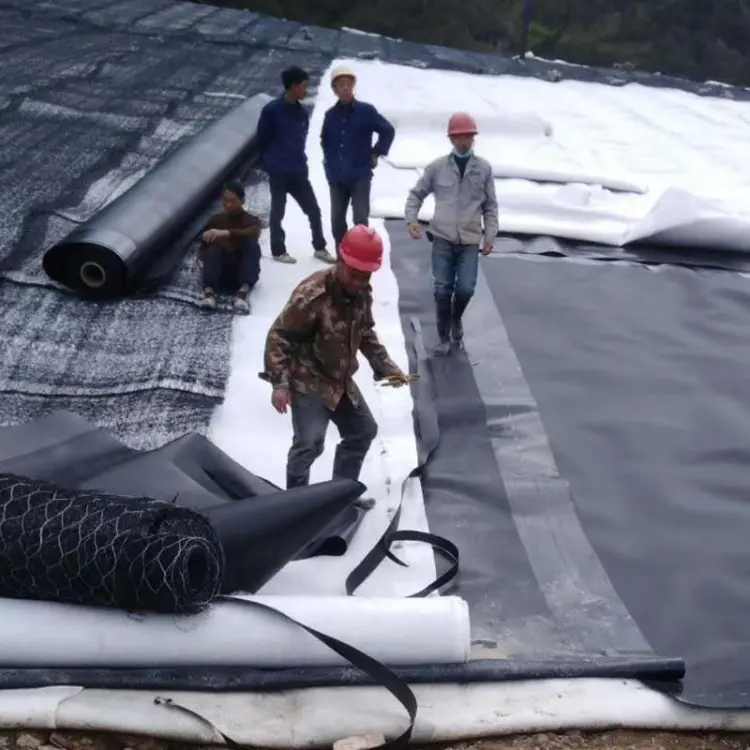I. Pre-Construction Preparation
1. Material Specifications
- Select needle-punched/spunbond nonwoven geotextile fabric based on:
- Filtration efficiency: Apparent Opening Size (AOS) ≤0.3mm (per ASTM D4751)
- Permeability: ≥10⁻³ m/s flow rate (ASTM D4491)
- Puncture resistance: ≥500N (ASTM D6241)
2. Site Preparation
- Remove all debris and rocks >30mm
- Compact subgrade to 85-90% Proctor density (lower than woven fabric requirements)
II. Installation Steps
1. Base Layer Preparation
- Use fine-grained sand (1-5mm) as cushion layer (thinner than woven applications)
2. Deployment Technique
- Unroll parallel to primary water flow direction (no directional strength concern)
- Allow 10-15% slack for soil conformity
3. Seaming Methods
MethodParametersOverlap300-500mm width (vs. 200mm for woven)Thermal Bond120-180°C (lower than woven fabrics)
4. Protection Layer
- Immediate coverage with ≤200mm granular material (thinner than woven)

III. Key Differentiators from Woven Geotextiles
- UV Sensitivity: Maximum 24-hour exposure limit (vs. 48h for woven)
- Seam Strength: 60% of parent material strength accepted (vs. 80% for woven)
- Anchoring: No mechanical tensioning required
IV. Quality Control
- Conduct in-situ permeability tests (ASTM D4491) post-installation
- Monitor for clogging indicators:
- 30% reduction in flow rate → Requires maintenance


